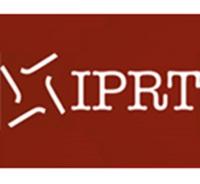Irish Penal Reform Trust: Cuts and Crime

In the Irish Penal Reform Trust's Budget Submission 2011 (perhaps "statement" would be better, as "submission" implies there is some sort of deliberative process going on!), we throw another dimension of the current crisis into the mix: the consequences of our budgetary decisions on crime and its associated costs.
Right from the beginning of the crisis and the McCarthy report, all consideration of public expenditure has been conducted in terms of a book-keeping exercise that measures the cost of everything and ignores completely the purpose behind public services. In our submission, we argue that the State's pathological unwillingness to assess the direct consequences of cuts in social spending in terms of increased demands and costs in areas such as criminal justice is at the heart of the problem.
Ultimately crime policy is merely one area where governance and policy have failed in Ireland. But in the context of BudgetJam, we would argue that it has a special place when we come to consider the myth of moral hazard. I don't think we need to point out here how the language of consequence following actions, the war on perceived leniency and the self-righteousness of our elected representatives around issues such as drugs, fine default, road traffic offences lies in stark contrast to their silence on the other crimes which have destroyed our economy.
The legitimacy of the justice system is already at breaking point. If we believe that the law should punish on the basis of pre-meditation of action and social harm caused, then we need to have a major re-think on where our current policies of imprisoning more and more of the poor in our society are going to take us. In this regard, policies that exacerbate marginalisation and policies that retain harsh punishments for the consequences of that marginalisation are two sides of the same coin.
Liam Herrick is Executive Director of the Irish Penal Reform Trust.
